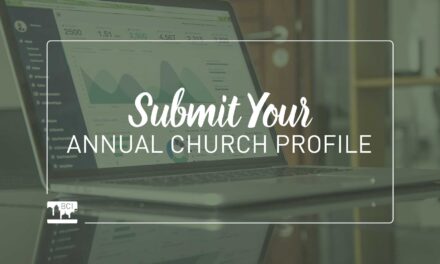1. The Southern Baptist Convention (SBC), a name which refers to both the annual two-day convention and the decentralized organization comprised of 46,793 local churches and 15.3 million members, is a network of autonomous churches voluntarily banded together at state, regional and national levels to engage in missions and ministry activities designed to fulfill the Great Commission (Matt 28:19-20). Each church in the SBC is an independent, self-governing local congregation of baptized believers that makes their own decisions on staffing, budget, programs, etc.
2. In 1814, Baptist churches in the U.S. joined together to create the General Missionary Convention of the Baptist Denomination. By 1845, the churches were divided over the issue of slavery. As church historian Miles Mullin explains, Baptists in the Southern U.S. states desired to make slavery a non-issue, while abolitionist forces in the North (and among northern Baptists) desired the convention to take a moral stand against it. The following year group of representatives from Southern churches created a new denomination, the Southern Baptist Convention.
3. In 1995, on the denomination’s 150th anniversary, the Convention voted to adopt aresolution on racial reconciliation that apologized for racism in its history, for condoning and perpetuating individual and systemic racism, and committed to eradicate racism in all its forms from Southern Baptist life and ministry. At its annual convention in 2012, the SBC elected as president Fred Luter Jr., the first African American to hold the position.
4. The SBC is directed by representatives of Southern Baptist churches, called “messengers.” Each church is allowed to send two messengers from each cooperating church to the annual meeting (and up to 10 based on other conditions). The messengers meet once a year for two days to adopt a unified missions and ministry budget called the Cooperative Program allocation budget, elect trustees to oversee the ministry entities of the Convention, receive reports from the SBC entities, vote on new resolutions and transact the other business of the Convention.
5. Along with the autonomous churches, the SBC is comprised of the following entities: six seminaries; an International Mission Board, which sends and supports missionaries all over the world; an Ethics and Religious Liberty Commission, providing resources and leadership on ethical issues and public policy; Guidestone Financial Resources providing financial planning, insurance, and annuities for church and denomination staff members; a North American Mission Board, supporting the state conventions in evangelism, missions, and ministry, such as disaster relief; the Women’s Missionary Union, which serves as an auxiliary in promoting missions; LifeWay Christian Resources, the SBC publishing house; and an Executive Committee coordinating the day-to-day functions of the SBC.








